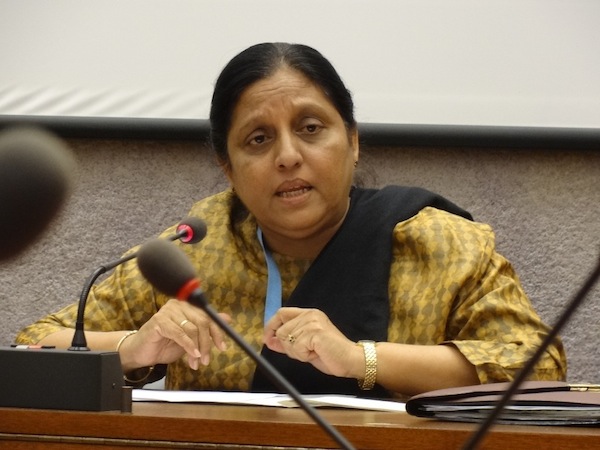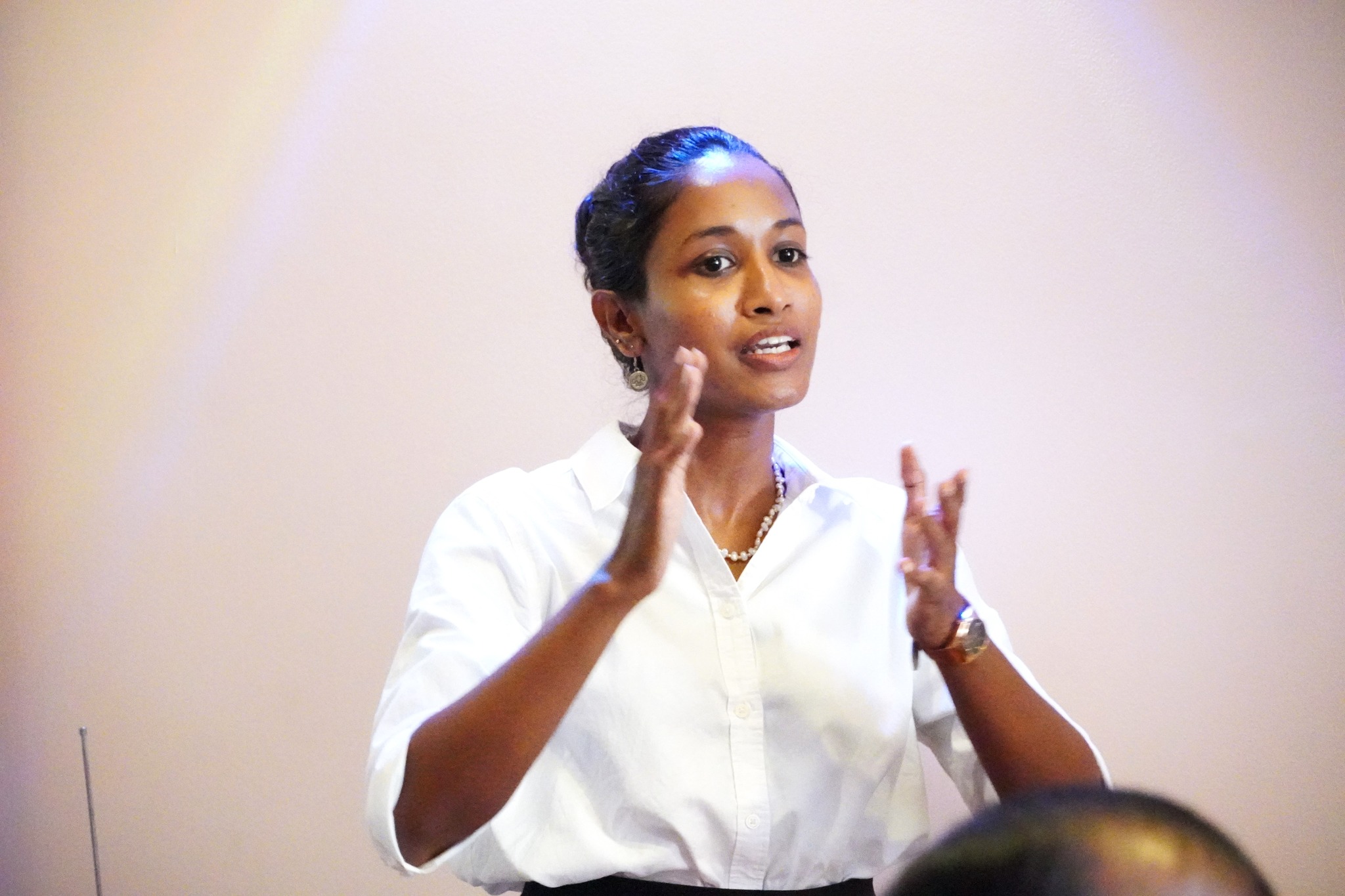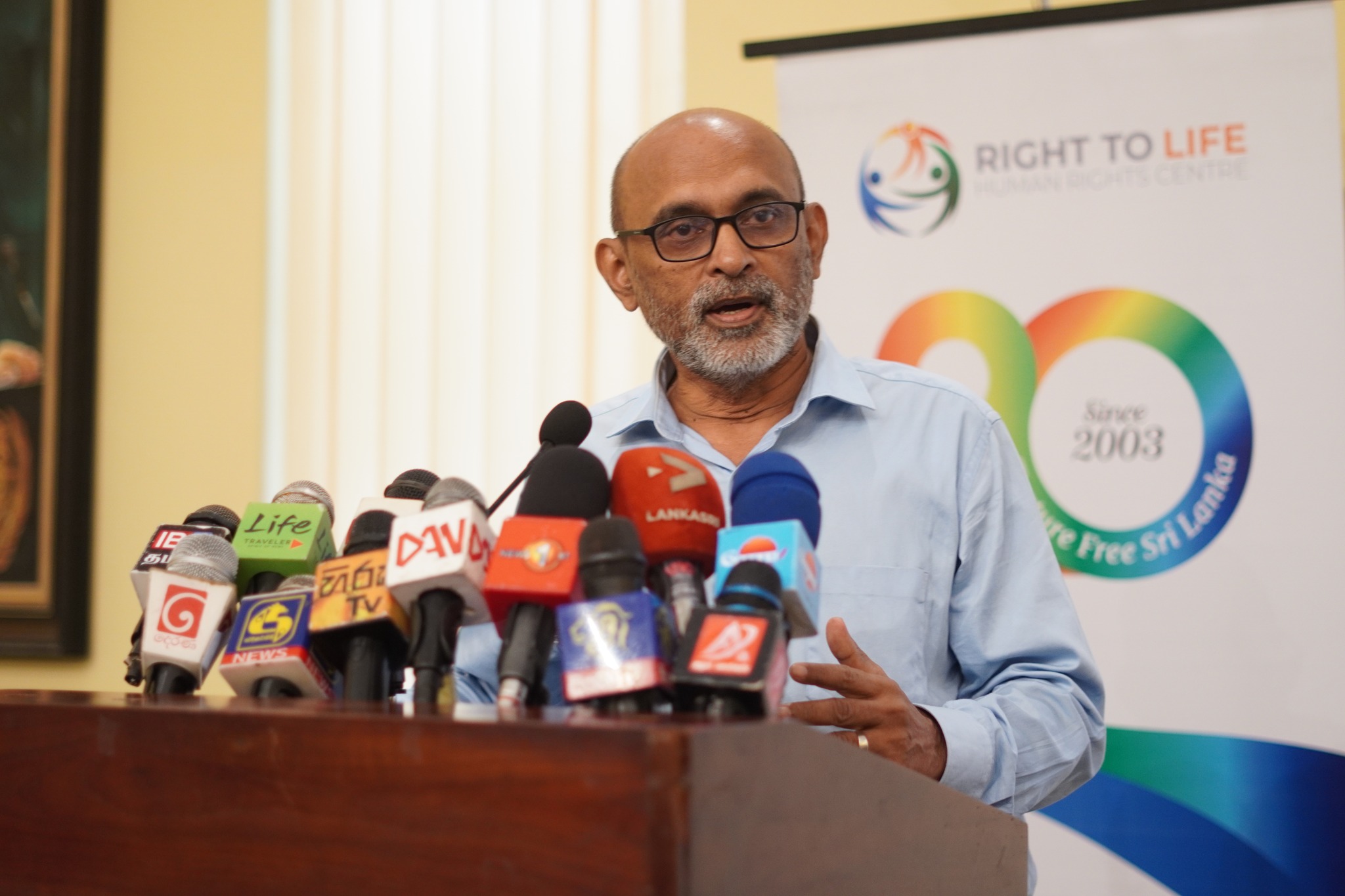Neetha Nelumdeniya is a 55-year-old mother of three children who lives in Nawa Gammanaya (New Village), Eppawala in Anuradhapura district. She is a grassroots-level civil society activist and entrepreneur who is well-known in her village for community work.
She was born in a low-income family in a marginalized village 35 kilometers to the northwest of Medawachchiya, as the eldest of the seven children of a farmer family. The poor family could afford only the education of the eldest daughter. When she was preparing for the CCE Advanced Level examination, due to a years-long drought, the family was further impoverished and decided to move to a state-owned cashew farm in Mannar for work. The entire family, including her, lived and worked on the farm enduring harsh conditions for a small salary.
The area was surrounded by Tamil-dominated villages in which rebel activities of the Liberation Tigers of Tamil Eelam (LTTE) had spread. Neetha’s family and many other worker families were ethnic Sinhalese. There were tensions between the ethnic communities in Sri Lanka.
After leaving school, Neetha worked as a temporary teacher at the school on the farm. She was married and had three children by 1990. Due to threats from the terrorists, they used to hide in the jungles with the kids at night. One day, terrorists surrounded the farm and ordered them to leave immediately from the area which was partly ruled by the rebels then.
In fear of life, they immediately left the farm with whatever they could grab but the rebels did not let them take even their simple valuables like bicycles and jewelry. They walked through the drought-hit forest with the kids and arrived in Vilachchiya town by evening. From there, they moved from place to place as internally displaced families and eventually settled in the new village where they now live.
 As one of the educated few, Neetha naturally became a leader of the community and mobilized the people to fight for their rights and community development. Neetha faced the utmost difficulties due to her husband’s sudden disappearance. She struggled to look for his whereabouts while looking after the two children. She always gave priority to their education which was the way to sustainably alleviate poverty. Meanwhile, she volunteered as a nursery teacher in her village and a health assistant.
As one of the educated few, Neetha naturally became a leader of the community and mobilized the people to fight for their rights and community development. Neetha faced the utmost difficulties due to her husband’s sudden disappearance. She struggled to look for his whereabouts while looking after the two children. She always gave priority to their education which was the way to sustainably alleviate poverty. Meanwhile, she volunteered as a nursery teacher in her village and a health assistant.
As a community leader, Neetha developed networks with state offices, non-governmental organizations, and other development partners. She successfully mobilized their support for community development. The camp, once cornered by the neighbourhood as the dwelling of the untouchable destitute, is now a developing village with amenities obtained through advocacy for community development. Neetha was behind changing the village name to Nawa Gammanaya (New Village).
Neetha’s personal life symbolizes the community’s development. Her son graduated from a university and now works as a professional community worker. Her daughter was trained as a nurse. She found her husband who was not mentally sound by that time and coordinated psychosocial support for him to cure. They run a small boutique for their living while sacrificing more time for community service. She is now a leading human rights defender whose service is sought by residents of many villages around Nawa Gammanaya. She has won awards for her community service and continues her work more energetically now.


